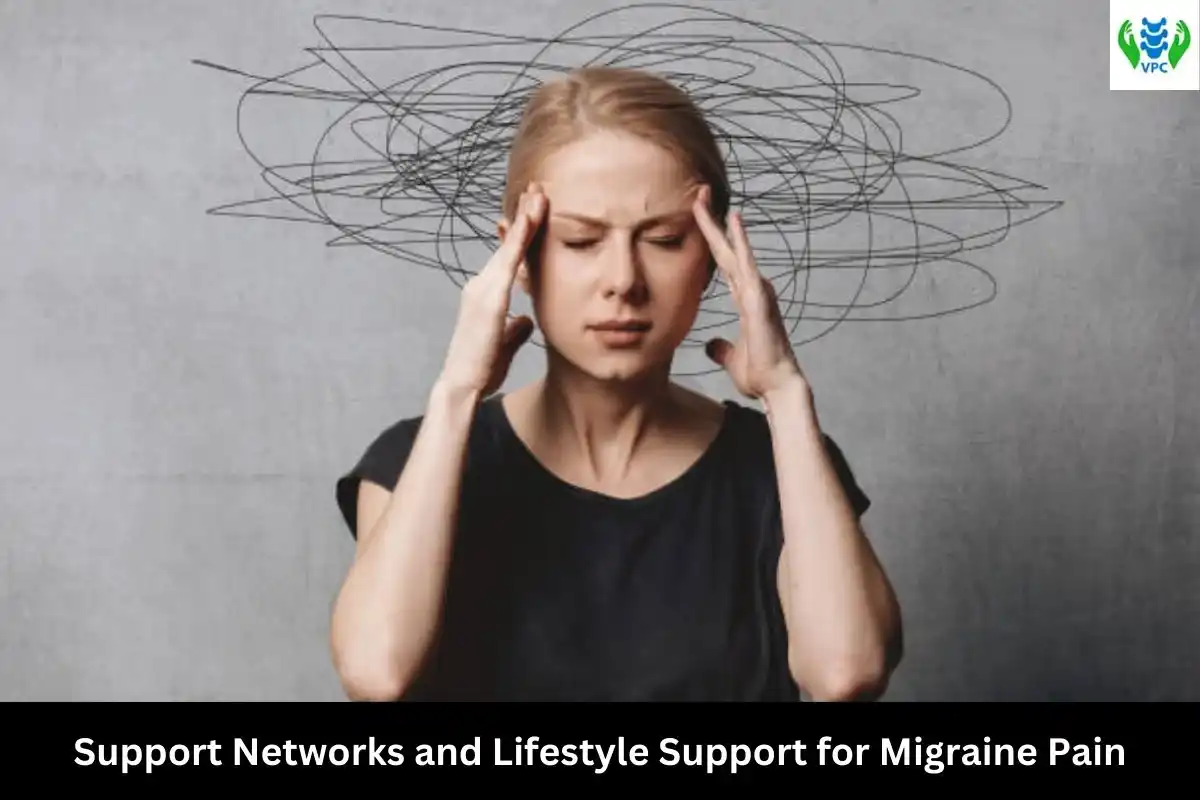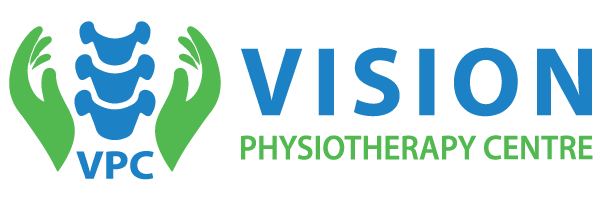Are you tired of dealing with migraines? This comprehensive guide will show you simple ways to cure them permanently. We’ll explain everything in easy-to-understand terms, so you don’t need to be a medical expert to benefit from this information.
By making a few lifestyle changes, seeking professional help, and exploring effective treatments, you can say goodbye to migraines for good. So, let’s dive in and discover the key steps to finding long-lasting relief from these debilitating headaches. If how to cure migraine permanently, you must have to follow some sequence.
Migraines can be a real pain, literally! They’re intense headaches that can disrupt your daily life, making concentrating, working, or even enjoying simple activities hard. That’s why finding a permanent solution for migraines is so crucial.
Imagine being free from the throbbing pain, the sensitivity to light and sound, and the constant disruptions. In this article, we’ll give you an overview of migraines and delve into the importance of finding a lasting remedy. So, let’s explore how you can bid farewell to migraines and regain control over your life.
If you want to cure your back pain, Read this post to know more

How To Cure Migraine Permanently?
Understanding and managing triggers is vital to finding a permanent cure for migraines. Write down what might be causing your migraines, such as what you eat, how stressed you are, or if you didn’t sleep enough. Avoiding or minimizing exposure to triggers can reduce the frequency of migraines.
Exercise, healthy food, and relaxation can also help prevent migraines. However, the best way to manage migraines is to see a doctor. They can give you specific advice and the correct treatments that will help you feel better for a long time.
Need to know more about Sciatica Pain? Read this detailed post that we wrote

Symptoms of Migraine Headache
Migraines are more than just regular headaches – intense, pounding pains that can last for hours or even days. Alongside the pain, you might experience other symptoms like nausea, sensitivity to light and sound, and sometimes even visual disturbances.
By recognizing these signs, you can distinguish migraines from other headaches. Figuring out what triggers your migraines is also important. Stress, certain foods, or even hormones can trigger them. Everyone is different, so learning more about migraines helps find ways to beat them.
Is Migraine Dangerous?
Migraines are really bad headaches, but they usually won’t kill you. They can make it hard to do everyday things. It’s important to see a doctor to determine what’s causing your migraines and how to improve them. They can also check for other health problems.
To get the best physiotherapy service, Contact Us at +8801932-797229 or make an Appointment

Treatment of Migraine Pain Relief
If you’re dealing with migraines, it’s a smart move to seek professional help from a healthcare provider to cure them permanently. They have the knowledge and experience to diagnose and treat migraines effectively. When you go to the doctor, they will ask about your health history and what’s wrong with you and check you over.
It’s important to provide them with accurate information about your migraines’ frequency, duration, and intensity. Based on their evaluation, they may recommend specific medications to manage your pain and prevent future migraines.
They can also guide you in lifestyle changes and offer strategies to identify and avoid triggers. Seeking professional help for migraines can help you find relief and improve your quality of life.
Take our premium quality physiotherapy service and get rid from any pain within a short time. Make an Appointment Now

Lifestyle Modifications for Migraine Management
Making some simple lifestyle modifications can have a significant impact on managing migraines.
First, it’s important to go to bed and wake up simultaneously every day. This helps your body know when to sleep and wake up, which can help with migraines. Second, try to relax and find ways to deal with stress. Deep breathing or thinking calm thoughts can help stop migraines from happening.
Eating healthy food, avoiding processed foods, and drinking lots of water are important. If you don’t drink enough water or eat certain foods, you can get a migraine. So, eat good things and drink lots of water.
Lastly, regular exercise can help reduce the frequency and severity of migraines. Exercise promotes overall well-being and releases endorphins, which are natural painkillers.
By implementing these lifestyle modifications, you can take significant steps toward managing and preventing migraines.

Identifying Triggers and Avoidance Strategies for Migraine Management
Identifying triggers and developing avoidance strategies is crucial to managing migraines. Keeping a migraine diary is a helpful tool for tracking and understanding what triggers migraines. By recording details about your daily activities, food intake, and potential triggers, you can notice patterns and identify the factors contributing to your migraines.
Certain foods, such as chocolate or caffeine, and hormonal changes during menstruation are common triggers. Once you’ve identified your triggers, developing strategies to avoid or minimize exposure to them is important.
This may involve making dietary adjustments, managing stress levels, practicing relaxation techniques, or implementing lifestyle changes. If you try to stay ahead of things and avoid what makes your migraines start, you can make them happen less often and not as severely.
Medications and Treatments Physiotherapy for Migraine Pain
Medications and physiotherapy can be crucial in treating various conditions and injuries, including migraines. Medicines prescribed by healthcare professionals can help manage the pain and symptoms associated with migraines.
They may include over-the-counter pain relievers for mild migraines or prescription medications for more severe cases. Medicine can help you feel better and live a happier life. Also, seeing a particular person who helps people get better by moving their bodies can be helpful.
Physiotherapy techniques such as acupuncture, rTMS, manual therapy, exercises, and modalities like heat or cold therapy can help alleviate pain, promote healing, and improve your overall physical well-being. Whether finding the proper medication or seeking physiotherapy treatments, these approaches can provide effective relief and support on your journey to manage migraines.
Acupuncture Treatment for Migraine Patients
Acupuncture is a really old way to help people feel better. Tiny needles are put in particular places on the body, which can help make the body feel better and stop headaches.
Acupuncture can help make migraines happen less often, not as bad, and not last as long. It’s like magic needles that help your body feel better by making good things happen inside you.
Additionally, acupuncture offers a holistic approach, addressing the symptoms and underlying imbalances within the body. Acupuncture is an excellent way to help people with migraines feel better without using medicine. It’s usually safe and can help people feel happier.
Repetitive Transcranial Magnetic Stimulation (rTMS )
rTMS (repetitive transcranial magnetic stimulation) is emerging as a promising advanced treatment for Parkinson’s disease. Magnets can help people move better. Placing magnets on your head can help your brain tell your body to move how it should.
This non-invasive procedure offers an alternative or complementary therapy to medication, modulating abnormal brain activity associated with Parkinson’s. As research progresses, rTMS holds promise in enhancing the quality of life for individuals with Parkinson’s, providing a targeted and safe treatment option.
5 Tips for Instant Migraine Relief
Experiencing a migraine can be debilitating, but some tips may provide instant relief and help manage the pain. First, finding a quiet and dark environment can help reduce sensory stimulation and ease discomfort.
If we know how to cure migraine permanently, putting something cold or warm on your head or neck can help you feel less tight and relaxed. Taking slow, deep breaths or thinking calm thoughts can also help you feel less stressed and improve your headache.
If a healthcare professional approves, over-the-counter pain relievers can provide temporary relief. Lastly, staying hydrated and maintaining a consistent sleep schedule can help prevent migraines. These things might help you feel better for a while, but it’s still important to see a doctor to find out what’s wrong and get a plan just for you.
Experience rapid pain relief with our premium physiotherapy. Book now

Support Networks and Lifestyle Support for Migraine Pain Management
Having friends or family who understand what you’re going through can help with migraines. Talking to people who know your feelings can make you feel better and less alone.
Talking to other people who have migraines helps. You can share what you’re going through, learn from each other, and feel better knowing you’re not alone. Additionally, it’s important to prioritize self-care and make lifestyle adjustments that support your overall well-being.
This can include practicing stress management techniques, setting boundaries, and incorporating activities that promote relaxation and happiness into your daily routine. Having people around you who care and care for you can help you feel better and deal with migraines better.
How to Cure Migraine Fast?
Are you looking for quick relief from migraines? Try these simple tips. Find a quiet, dark place to rest. Apply a cold or warm compress to your head or neck. Practice relaxation techniques like deep breathing.
Take over-the-counter pain relievers (with a doctor’s approval). Drink lots of water, go to bed, and wake up simultaneously every day. It’s also important to talk to your doctor for advice that’s right for you.
Migraine Self-Care
Taking care of yourself when you have a migraine is crucial. Start by finding a quiet, dark place to rest. Apply a cold or warm compress to your head. Stay hydrated and drink plenty of water. Practice deep breathing and relaxation techniques. Remember to prioritize self-care and seek medical advice if needed.
With the right approach, finding a permanent solution for migraines is possible. By understanding migraines and their impact, seeking professional help, making lifestyle modifications, and exploring various treatment options, you can significantly reduce the frequency and severity of migraines.
Identifying triggers, practicing avoidance strategies, and considering advanced treatments can provide long-lasting relief. Additionally, integrating support networks and prioritizing self-care can provide invaluable emotional and lifestyle support. In this blog post, we have discussed how to cure migraines permanently.
Remember, you don’t have to face migraines alone. With determination, patience, and the right resources, you can take control of your migraines and enjoy a better quality of life.
Written by.
Dr. Saiful Islam, PT
BPTh (DU), MPTh (Orthopedics) – NIPS, India
PG Certificate in Acupuncture, India
Specially trained in Ozone Therapy, USA and Ozone Forum, India.
Physiotherapy Consultant, Vision Physiotherapy Center.
To consult: 01760-636324 , 01932-797229 (9:00 AM to 9:00 PM) and make an appointment.
Our Facebook page: Vision Physiotherapy Center
Sources
WebMD- Migraine: Symptoms, Causes, and Treatment – WebMD
Mayo Clinic- Migraines: Simple steps to head off the pain
Healthline- 15 Natural Ways to Reduce Migraine Symptoms
FAQ
Can lifestyle changes help manage migraines?
Yes, lifestyle changes can be very effective in managing migraines. These include maintaining a regular sleep schedule, eating a balanced diet, staying hydrated, managing stress, and avoiding known triggers.
Are migraines hereditary?
Yes, migraines can run in families. If you have close relatives who suffer from migraines, you may be more likely to experience them yourself.
How can I identify my migraine triggers?
Keeping a headache diary can help identify migraine triggers. Note down the foods you eat, your sleep patterns, stress levels, and other factors around the time you experience a migraine.
Can children get migraines?
Yes, children can get migraines. The symptoms in children can be different from those in adults and may include abdominal pain, nausea, and dizziness in addition to headaches.


